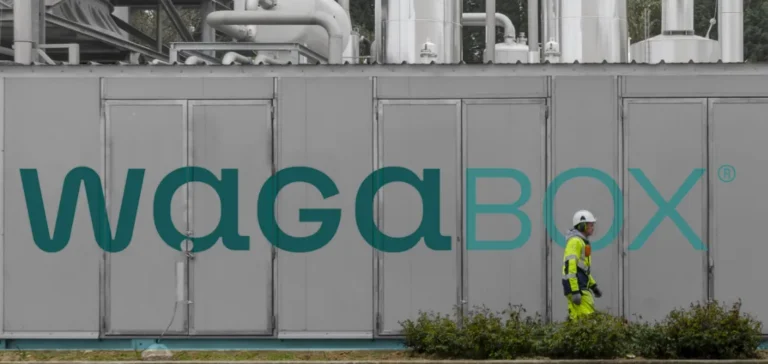The French company Waga Energy has been commissioned by the Aix-Marseille-Provence metropolis to undertake the technical management of biogas produced at the Arbois non-hazardous waste storage facility. This management includes regulating the degassing network and utilising gas through cogeneration engines to generate electricity. Eventually, the biogas will be processed by a Wagabox unit, proprietary technology of the company, thereby producing biomethane to be injected into the local distribution network.
Project technology and methodology
To optimise gas capture and ensure continuous operation of valorisation systems, Waga Energy has implemented rigorous installation monitoring. Each week, a team verifies and adjusts priority wells. More thorough inspections occur bi-weekly, with comprehensive quarterly checks ensuring the integrity and efficiency of equipment.
This methodical monitoring maintains appropriate depression levels in the wells, thereby limiting odour nuisances and atmospheric emissions. The primary objective remains guaranteeing consistent biogas quality meeting equipment valorisation specifications, consequently reducing malfunction risks.
Digital integration with eLandfill
To support this technical approach, Waga Energy now employs the digital platform eLandfill. This tool allows operators to centralise all data from regular measurement and observation campaigns conducted in the field. With precise mapping, the overall state of the network can be assessed in real-time, facilitating prompt and efficient decision-making.
The eLandfill digital solution also incorporates topographical surveys and data on diffuse emissions, thus offering comprehensive visibility of site developments. Furthermore, it ensures clear and precise reporting, easily shared with authorised stakeholders, while maintaining data security and traceability.
Continuous operational improvement
This digitalisation of management represents a significant milestone in operational control of biogas at the Aix-en-Provence facility. Combining rigorous technical practices with a robust digital solution, Waga Energy aims to sustainably optimise site performance and environmental management. All actions implemented are designed to extend equipment lifespan and enhance productivity.
By standardising and facilitating data collection and analysis, the eLandfill platform aligns fully with the current trend of integrated digital management of industrial energy installations. This model could potentially be deployed at other similar facilities, depending on the specific needs of municipalities and industrial operators involved.






















